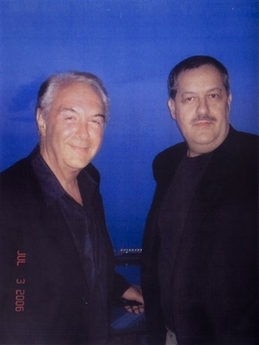Judge removes himself from Massey case
Associated Press
Thu January 17, 2008
Area: Charleston, Huntington
CHARLESTON, West Virginia - The chief justice of the state Supreme Court agreed Friday to remove himself from a pending case involving Massey Energy Company, days after vacation photos surfaced showing him in Monaco with the coal producer's top executive.
Chief Justice Elliott "Spike" Maynard said he was stepping down from the matter "despite the fact that I have no doubt in my own mind and firmly believe I have been and would be fair and impartial in this case."
But in his statement, Maynard said "it has now become an issue of public perception and public confidence in the courts."
Maynard helped form a 3-2 majority in November that overturned a multimillion-dollar judgment against Richmond, Va.-based Massey that another company, Harman Mining, and its president, Hugh Caperton, had won in a contract dispute. Caperton had asked Maynard to step down from the case before the high court reconsiders that ruling. With interest, the damages are worth $76.3 million.
"It's unfortunate that the motion had to be filed," Bruce Stanley, a lawyer for Caperton, said Friday. "It's even more unfortunate that it took this long to get to this point."
Stanley also suggested that Maynard's recusal should negate his vote on the ruling, leaving it a 2-2 tie affirming the 2002 verdict.
A lawyer for Massey, D.C. Offutt, called that analysis absurd: "I don't think it can act retrospectively."
Lawyers for Harman and Caperton have argued that Maynard had previously failed to disclose his ties to Massey Energy chief Don Blankenship. Offutt noted that their friendship was raised in an unsuccessful bid for Maynard's recusal in a 2004 case involving flood litigation.
"The relationship between Justice Maynard and Blankenship has been known for a long time," Offutt said. "They sat on this until they got these pictures."
The photos of Maynard and Blankenship together in Monaco in 2006 were included in a revised court motion filed Monday.
Both men have said they were on separate vacations, and that each paid his own way. Maynard has also said his friendship with Blankenship has not affected his impartiality on the court.
In one picture, the men are sitting side-by-side, smiling over empty glasses at a cafe along the Riviera as the Mediterranean sun sets behind them. In others, they are posing by the seaside. Ten other photos were filed under seal, and depict the men with two female companions, the motion said.
The court is scheduled to hear the pending reconsideration motion on Thursday. It must now appoint a replacement, likely a circuit judge or retired jurist, to sit in Maynard's place.
While that duty normally falls to the chief justice, Maynard's recusal sends the task to the next in line for that post, Justice Brent Benjamin. But Harman has also challenged Benjamin's impartiality, renewing an earlier, rejected call for him to step down as well.
The company's lawyers cite millions of dollars that Blankenship spent on an ad campaign attacking a Democratic incumbent on the court that helped to boost Benjamin into office in 2004.
"We think it's now incumbent upon Justice Benjamin to reach the same conclusion" as Maynard, Stanley said Friday.
That recusal petition was filed late Thursday. Benjamin has not yet responded, court spokeswoman Jennifer Bundy said Friday.
Massey, meanwhile, had earlier sought Justice Larry Starcher's recusal. Starcher has made a series of public comments critical of Massey, its track record, Blankenship and his 2004 ad campaign.
Starcher declined to step down, but Massey may renew its motion, Offutt said, citing Starcher's dissenting opinion attacking the November ruling.
"We're looking at that," Offutt said. "We haven't ruled out doing that."
Maynard has been out on sick leave since Thursday. A Democrat elected to the court in 1996, Maynard announced plans earlier to run for a second, 12-year term in 2008.
November's ruling reversed a 2002 Boone County jury verdict that found that Massey had ruined Harman and Caperton after hijacking a lucrative coal supply contract.
Maynard, Benjamin and Justice Robin Davis concluded that while Massey's misconduct justified the ruling, the lawsuit never should have been brought in West Virginia because a related case was filed earlier in Virginia, yielding a $6 million verdict for Harman against Massey.





 Share your thoughts in the Forum
Share your thoughts in the Forum